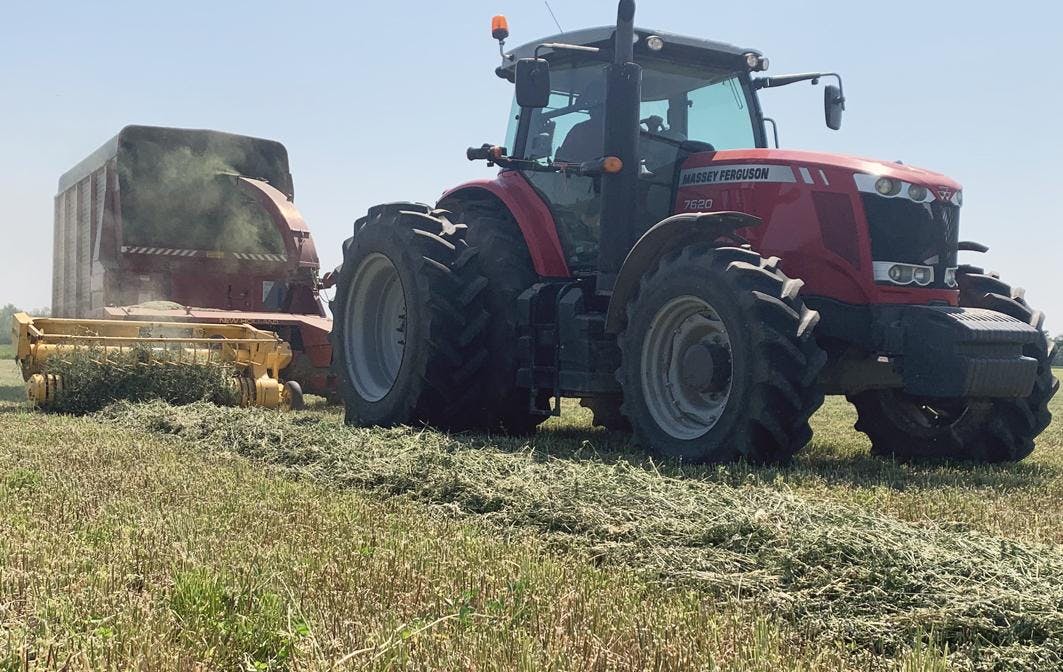 Hay harvest in Prince Edward County. (Jason Parks/Gazette Staff)
Hay harvest in Prince Edward County. (Jason Parks/Gazette Staff)
By Dominique Jones
Special to the Gazette
Part of a New Series: Vital Impact Stories from The County Foundation:
Did you know that the source of our food is at risk for future generations?
Every day, in Ontario alone, we lose 319 acres of farmland to non-agricultural land uses, things like housing development, quarrying and mining.

Dominique Jones of the County Foundation. (Submitted photo)
In the past ten years, the County’s cropland acreage decreased by 8.23 per cent or 7,105 acres. What does this mean for the future of agriculture here?
One way to protect farmland is to set up a trust. A farmland trust is an easement that ensures that land is dedicated to farming; it continues in perpetuity. Prime agricultural land can be lost to re-zoning. An easement protects prime agricultural land from re-zoning.
With a trust, owners of farmland continue to own their land and, of course, retain the right to sell their land or pass it on to the next generation. But it will always be farmland.
Farmland easement agreements do not restrict normal farm practices and are designed to support a wide range of farm types and agricultural uses.
Dee and Peter Hazell in Hillier are currently using the Ontario Farmland Trust to protect their 100-acre farm. “When we bought Hazell Farm, our plan was to keep the agricultural areas as farmed land and the woodland, swamp and shoreline as a wild place for all the creatures that share this land with us,” said Ms. Hazell.
“I can protect the land now but what happens when I sell or die? Now I know that long after I am gone, this little corner of Prince Edward County will be as it is now, farmland and wildspaces, forever protected.”
The County Foundation is supporting the Ontario Farmland Trust with this process on the Hazell farm. It offers support financially, by way of a grant, but also conscientiously by sharing the story and creating new trends for agricultural lands. While the Foundation does not think creating a farmland trust is the right mechanism for every situation, it does know that it is the strongest tool in the land-preservation tool kit.
In Prince Edward the median age of farmers is 59. And yet, 63 per cent of local farms do not have succession plans. What does this mean for the future of local agriculture?
Like most issues there will be myriad solutions. Preserving land is a key step; once that land is adapted to other uses, there is no going back.
The other side of the equation concerns up-and-coming farmers and agricultural operations. The Foundation wants to support this career and way of life for generations to come.
This is a conversation for everyone. It starts with the support local farmers and producers, either by visiting a farmstand, purchasing a farm share subscription, or by taking advantage of local protein options. This support is part of what makes farming viable. It will ensure the future of our farmland, and, quite honestly, it tastes better too.
Interested in learning more?
Vital Signs data: www.pecdata.ca
Ontario Farmland Trust: https://ontariofarmlandtrust.ca/.
General: https://thecountyfoundation.ca/
See it in the newspaper